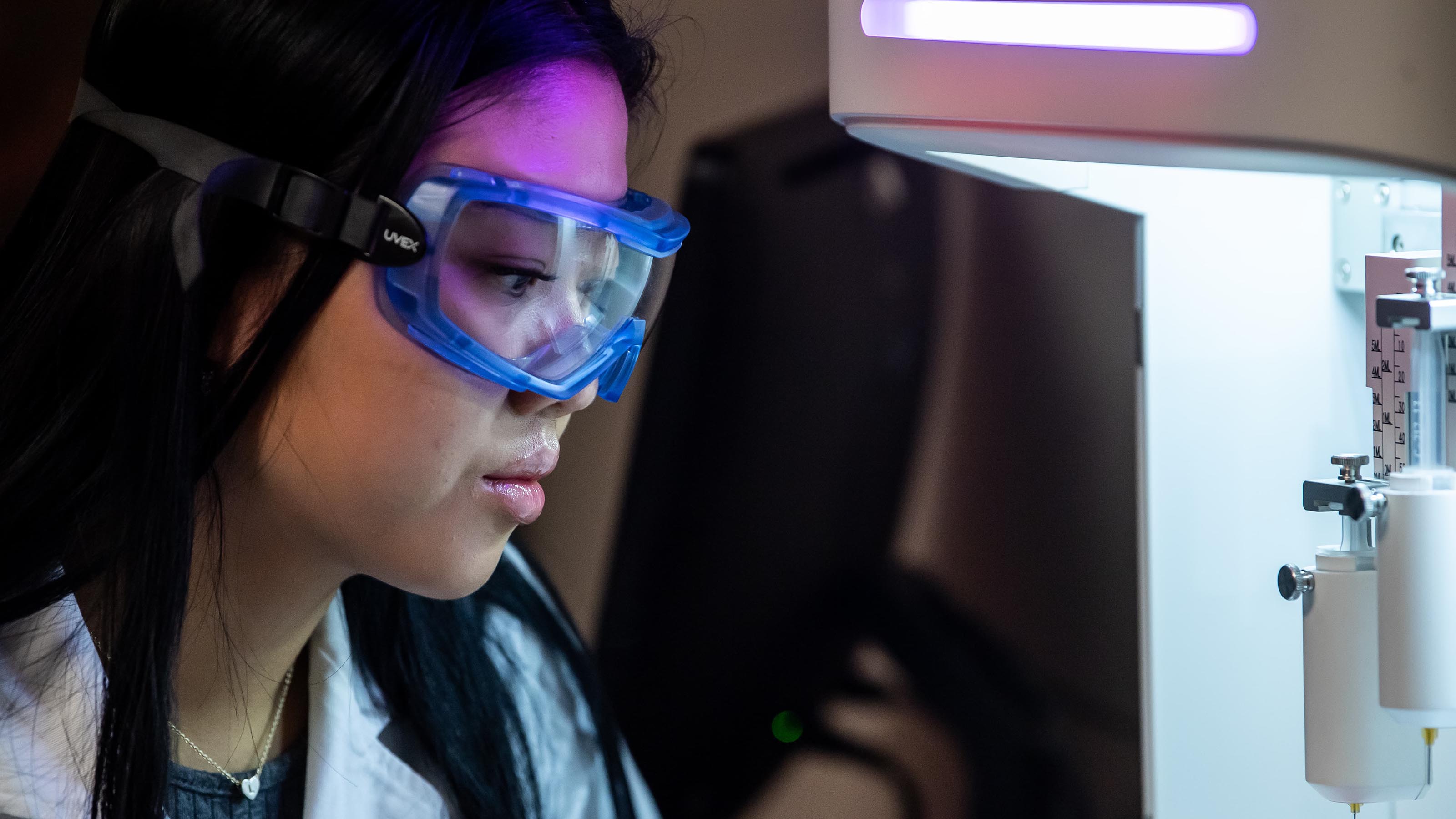What Can You Do with a PharmD?
There are a variety of different career paths that you may choose to go down after earning a PharmD at Saint Joseph’s University — some are traditional and some might surprise you.

Earning a Doctor of Pharmacy degree (PharmD) is an integral step toward becoming a pharmacist. But what might a PharmD prepare you for out in the field?
“Pharmacy is an incredibly varied field and our PharmD program really opens up all those options to you,” explains Edward Foote, PharmD, dean of the Philadelphia College of Pharmacy at Saint Joseph’s University. “Because of that, so many lucrative and impactful careers can begin as soon as our graduates cross the Commencement stage.”
There are a variety of career paths that someone may choose to go down after they’ve earned their PharmD at Saint Joseph’s University — some are traditional and some might surprise you.
TRADITIONAL PATHWAYS
Community Pharmacists
This is the traditional role of the pharmacist and is where many pharmacists practice today. Traditionally, a community pharmacist is someone behind the counter at their local retail drug store who prepares and dispenses medications. The role of the pharmacist in community practice is evolving to include managing medications, patient education and providing direct patient care such as immunizations. Community pharmacists account for the majority of pharmacists in the United States and collectively dispense over 2.5 billion prescriptions per year.
Clinical or Institutional Pharmacists
Clinical or institutional pharmacists are typically employed in healthcare settings such as hospitals, emergency departments, community health centers or rehabilitation centers. Some work in specialized units such as critical care or pediatrics. They work collaboratively with healthcare providers to support and treat patients. While clinical pharmacists are more heavily involved in direct patient care, institutional pharmacists do more work in the pharmacy such as verifying medications, answering medication-related questions and assuring that medications such as intravenous solutions are prepared in a safe way.
Pharmaceutical Industry Pharmacists
These pharmacists work within pharmaceutical industry businesses or corporations leveraging their unique expertise in medications. In this role, a pharmacist may help develop and disseminate drug information, design clinical drug trials, establish safety regulations, participate in quality control, or work in sales and marketing.
Pharmacy Consultants
Pharmacy consultants, or consulting pharmacists, partner with hospitals, clinics, healthcare centers, long-term care facilities or insurance providers to improve the workflows and services provided. These pharmacists are typically hired depending on their specialty.
UNIQUE PATHWAYS
Earning your PharmD can prepare you for a multitude of careers, each of which will empower you to affect real and lasting change in your community and beyond. The list above is not exhaustive — there are dozens of other pharmaceutical careers you can decide to pursue after earning your degree. Learn more about Saint Joseph’s PharmD.
Ambulatory Care Pharmacists
Ambulatory care pharmacy is a growing area of practice. Ambulatory care pharmacists work in a variety of environments in both hospital and community-based settings. Each site has its own unique practice style and may focus on primary care or focus on one specific disease state.
Veterinary Pharmacists
Veterinary pharmacists are pharmacists — but for animals! They prepare and dispense medications, advise an animal’s owners on how to use or administer treatments and generally work to improve the health of their animal-patients.
Nuclear Pharmacist
Nuclear pharmacy is a specialty area dedicated to the compounding and dispensing of radioactive materials for use in nuclear medicine procedures. Nuclear pharmacists prepare and compound radiopharmaceutical agents, perform quality control measures and ensure the proper transportation of medications. Pharmacists in this profession work in highly regulated environments and often start work at early hours of the day.
Geriatric Pharmacists
Geriatric pharmacists typically treat patients 65 and older, who are at greater risk for illnesses and medical conditions. Because older individuals take more medications, they are at a greater risk for negative drug-to-drug interactions. One of the most critical aspects of a geriatric pharmacist's work lies in lessening these risks.
Infusion and Compounding Pharmacists
Infusion or compounding pharmacists create specific medications ordered by physicians that may not be readily available. If a medication needs to be diluted for a child or transferred from a tablet into a liquid, these pharmacists work to meet the patient’s needs. In the case of infusion pharmacists, they may even be responsible for assisting with home medication administration.
Public Health
The public health space is always in need of pharmacists! Pharmacists who go into public health might be involved with pandemic readiness, organizing or executing vaccine drives in at-risk communities or advising public health authorities and policymakers. Many of these pharmacists work for the federal government in the armed forces, at the Food and Drug Administration or with the Public Health Service.
Pharmaceutical Law
Some pharmacists decide to pursue legal training. They typically specialize in pharmaceutical law and regulations, which allows them to advise doctors, hospitals, pharmaceutical companies and other institutions on legal issues that may threaten their business.
Academia
Pharmacists in academia are teachers and researchers who focus on public service or patient care. Others may serve as consultants for local, state, national and international organizations. Specific disciplines within academic pharmacy include administration,, pharmacy practice, experiential education, drug discovery and pharmacology.
Earning your PharmD can prepare you for a multitude of careers, each of which will empower you to affect real and lasting change in your community and beyond. The list above is not exhaustive — there are dozens of other pharmaceutical careers you can decide to pursue after earning your degree. Learn more about Saint Joseph’s PharmD.